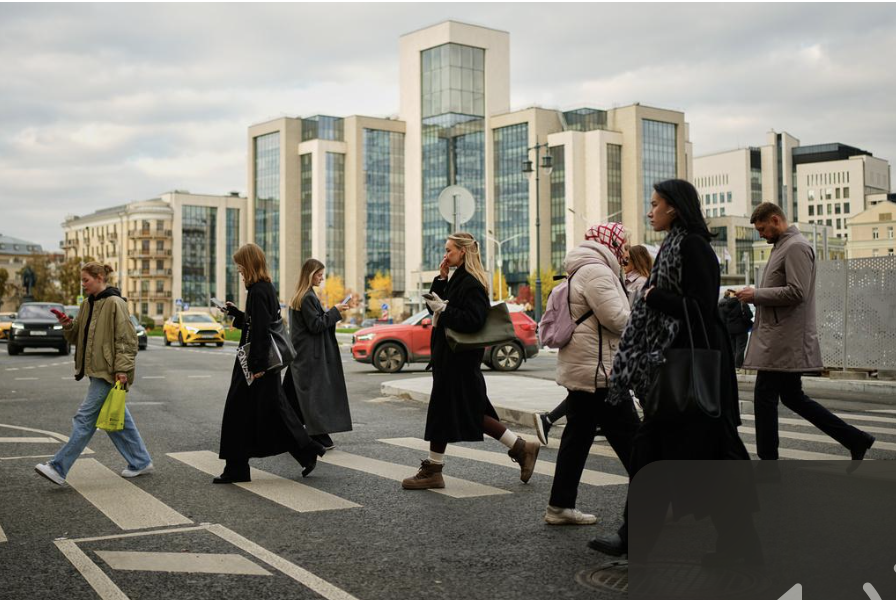The India-U.S. Trade Negotiations: Tariff Relief and the Russian Oil Dilemma
Civilians walk the streets of Moscow, with Lukoil's headquarters seen in the background (AP Photo/Pavel Bednyakov)
Negotiations between India and the United States (US) have reached a focal point, as topics on trade, policy, energy, security, and geopolitics continue to affect both countries. The US has proposed lowering tariffs on primary Indian goods—such as steel, textiles, and pharmaceuticals in the case that India reduces its reliance on Russian oil.
The ongoing talks between India and the US highlight the intersections of trade policy, geopolitics, and energy security. India’s resolutions on tariff reductions and energy diversification in the upcoming month will not only shape the economic future but also its status as a prevalent power in navigating between East and West. If a compromise on tariff reductions emerges that allows careful diversification of oil sources, it could redefine the contours of the strategic trade relationship between the United States and India.
The US has persisted in these negotiations to strengthen their supply chain allies. The United States sees tariff cuts as an effort to include India as part of Western trade networks.
If India were to reduce its reliance on Russia, it would signal to the world that New Delhi supports modern Western ways and it would open more doors to trade agreements and energy, both of which are critical to the United States.
However, the proposal does not offer India the security it seeks. India views this proposal as both coercive and conditional, but it could lead Washington to establish long-term partnerships in the Indo-Pacific.
Indian media coverage of these negotiations allows the public to see a more nuanced side, showing how the trade and oil policy conversations can be viewed as a dilemma, to varying degrees. For example, New Delhi faces a “test of strategic autonomy,” especially after President Trump stated India needs to “pick a side.”
Indian officials have insisted that their oil imports from Russia are in the country’s interest, not for personal political gain. Russia has been supplying crude oil, an unrefined petroleum product, to India at reasonably discounted rates, which aligns with India’s post-pandemic recovery plan, especially given the extremely high global energy prices. Any sudden shift could negatively affect domestic consumers and industries alike, which is what the United States is trying to prevent through amplified trade.
India is ready and open to increasing energy purchases from the United States, particularly liquefied natural gas (LNG) and refined petroleum products. Such diversification would allow India to moderately reduce its dependence on Russian oil without appearing to submit or surrender to external pressures.
Industry experts have recommended that any alteration be phased and economically viable, ensuring future energy goals remain stable and affordable. Moscow is already feeling the pressure from a “double squeeze”: the United States-India negotiations threaten to shrink one of its remaining markets.
If New Delhi were to scale back its imports, Russia would face steep revenue losses. For India, the challenge lies in balancing short-term benefits with long-term diplomatic objectives.
A closer trade partnership with the United States could enhance technology transfer, manufacturing ability, and investment, all of which are crucial to India’s ultimate goal of becoming a production center for foreign trade. India’s focus has remained protecting its own autonomy through energy security and an independent foreign policy throughout the negotiations.
Combined photograph shows President Donald Trump and President Putin at an international trade conference (AP Photo/Uncredited)
India and the United States could reach a middle ground in negotiations that benefits both, or at least does not negatively affect either. Bringing all parties to the table would be a first step towards resolving this trade conflict.


